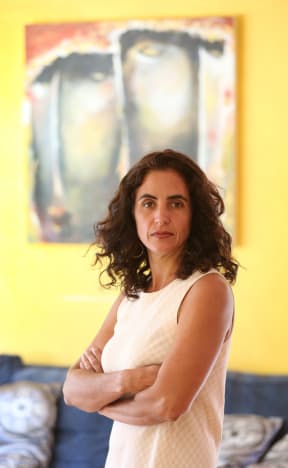Foreign-trained doctors shut out of hospital jobs are caught in a perfect storm, a leader in health workforce planning says.
At least 31 doctors from countries including the Middle East, Latin America, Bangladesh, South Africa and the Pacific have passed a New Zealand Registration (NZRex) exam only to find they are behind New Zealand medical graduates and some others in the queue for work.

Dr Morella Lascurain, who can't find a job in New Zealand. Photo: RNZ / Jason Oxenham
Many are permanent New Zealand residents or citizens, and they have complained to the Human Rights Commission that they're being discriminated against.
Health Workforce New Zealand director Graeme Benny said the group, known as NZRex doctors, were in a difficult position, and could have come to New Zealand with the expectation of a job.
But he said New Zealand authorities must give priority to medical students who had trained here, at taxpayer expense.
New Zealand was producing enough medical graduates through medical schools in Auckland and Dunedin to meet all the first-year hospital training positions district health boards could deliver, Dr Benny said.
"At the same time the international situation for medical graduates has turned very very quickly. So now internationally there's an over-supply of doctors, and that has happened over the space of about the last 24 months, particularly in regard opportunities for New Zealand doctors.
"Previously where they could move to Australia, those opportunities have dried up."
Problem compounded
The fact more foreign-trained doctors were expected to sit the NZRex exam this year, potentially compounding the problem, was another indication of the perfect storm, he said.
New Zealand, which was heavily reliant on overseas-trained doctors, needed to continue the process of becoming more self-sufficient with its own doctors, which was seen as a better and more sustainable situation for the future, Dr Benny said.
There was still a need for doctors -- particularly in postgraduate years two and beyond -- to be prepared to move to fill vacancies in rural and smaller centres.
Some district health boards (DHBs) recruited junior doctors overseas, mainly from Britain and Ireland, to fill hospital vacancies but they had been urged to stop the practice to help reduce the "pipeline" problems.
The Auckland region DHBs said they had begun doing just that, reducing recruitment by 62 percent in the past year.
Auckland DHB chief medical officer Margaret Wilsher said the limited recruitment which has gone ahead had been in specialties such as psychiatry and anaesthesia, where it had been difficult to find suitable local candidates.
NZ doctors first
Overseas recruitment of junior doctors was more likely to be for so-called senior fellow or senior registrar roles.
"But it's not likely that we'll need to do so for any other roles in our junior medical workforce because we know that there are increasing numbers of graduates coming through both our medical schools in New Zealand, and we have a large number of RMOs (resident medical officers) already in our training positions looking to continue within training schemes within New Zealand," Dr Wilsher said.
Opportunities for work in Australia and Britain had dried up, and junior doctors here were not travelling abroad as much as previously and were tending to hold on to their jobs, she said.
Resident Doctors Association national secretary Deborah Powell said finding jobs for New Zealand graduates needed to be the first priority.
DHBs were doing well in fitting New Zealand graduates in and needed to act collectively to achieve the right result, she said.

